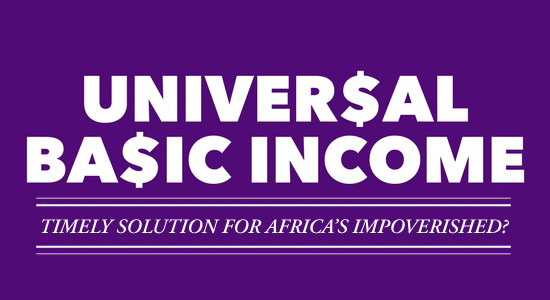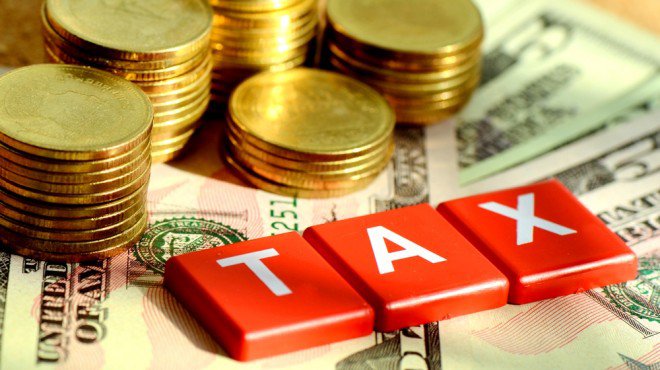UNIVERSAL BASIC INCOME (UBI) – a timely solution for Africa’s impoverished?
Universal basic income (UBI) is when an entity, like an NGO, Government or other institution, provides a set amount of money to all of its beneficiaries irrespective of their wealth and taxpayer status. It’s based on the idea that every member of society must have access to basic resources, and further, these resources must be sufficient for the survival of an individual. So, the concept is based on social care and boosting the moral behaviour of society as a whole (peters, 2021). This social support system aims to eliminate poverty, provide easy access to basic needs for everyone, helps to eliminate bureaucratic involvement in the social support system (such system can be time-consuming and subject to excessive delays), helps to control the crime rate, and provides a greater sense of financial security. Further, the pandemic of COVID-19 has severely affected not only businesses but households around the world. Despite development of the vaccine, still a confusion remains regarding future looks of recovery (Lora Jones, 2021). So, the need to financially support society is more prominent in today’s world. And UBI can be one of the suitable options. The following defining characteristics of the UBI make it an attractive dimension for social support system. Importance of universal basic income (UBI) Universal basic income (UBI) is perceived as a great solution for the social security problem. Implementation of UBI in the United States and Iran has helped reduce poverty and improve the overall financial stability of the people. But let’s bring our minds home to Ghana and other African countries. In today’s African society, millions are facing severe issues like increasing financial challenges, adverse economic conditions from lockdowns and business closures due to this pandemic, increasing inflation, decreasing opportunities for employment, food insecurity, and many more. Hence, UBI can play an important role in uplifting living standards and meeting the survival needs of the people (JRF, 2021). Likewise, for UBI implementation, there is no need to assess individual background and other aspects. So, this system eliminates the chances of unfair rejection. This further showcases the importance of UBI in a present Africa where, in many cases, the threshold of the minimum wage is not sufficient. Another important point to note is that most public assistance programs to financially support people are outdated or lack efficacy, not to even talk about efficient implementation. If the case were otherwise, Africa would be further than where it is now. Hence, UBI can provide a simple but excellent choice to bring an element of financial stability within society. History of universal basic income (UBI) The idea of UBI has been multiple centuries-old, and different rulers have implemented the same to support financial aspects of the society at different times. However, it’s again gaining momentum due to significant automation and development of artificial intelligence leading to a great cut in traditional jobs (Heimer, 2021). Political philosophers and economists have used this concept in the post-war economies; this was done to control the situation and rehabilitate the overall environment. Similarly, Europeans used the concept to achieve a producerist vision of society as a whole. These programs were directed to alleviate poverty and control inequality. So, the history of UBI can be linked to the colonial and post-colonial context. (Daniel Zamora Vargas, 2021) Great Britain has used UBI in India to develop a system of food distribution to control hunger and enhance developing aspects of the country. Likewise, a disciplined system of Zakat (2.5% on net equity) under Islamic laws and guidance is mandatory and has been used by states around the world (Daniel Zamora Vargas, 2021). Hence, the notion of States and capable entities utilising a disciplined system of income distribution to stabilize the financial conditions of their people is not new. As the saying goes, there is nothing new under the sun. The history of UBI is as old as the broader history of a global social policy where states have used the concept from time to time to alleviate poverty and ensure human survival. Important facts and figures related to universal basic income Currently, no country in the world has implemented UBI in full. However, there are experiments and discussions for the same around the globe. Here in Ghana, The RIO Corporation and The RIO Think Tank (TRTT) continue to push discussion on poverty alleviation avenues and other welfare programs, backed by proper implementation structures and evaluating & reporting criteria that meet world standards, both before and after program execution. It is worth noting that the welfare system of Norway is close to UBI; the Government takes care of the citizen’s access to fundamental goods, health care, and social security income. However, that’s not truly UBI because Government has specified certain conditions to receive such benefits. The conditions include, be a law-abiding citizen, paying taxes, participating in an election, and citizen must try to find a job. All that is well and good in Norway’s eyes but as I stated above, Universal Basic Income (UBI) must be unconditional. In the United States election of 2020, the presidential candidate Andrew Yang campaigned to implement UBI in the country. This basic income program was called “Freedom of Dividend” and directed to tackle adverse impacts of automation on society. The plan intended to help every American with $1,000 per month, which may not be enough but a supportive amount to meet operational expenses (Clifford, 2020). Likewise, multiple states have introduced basic income programs; these states include New Jersey, California, Pennsylvania, and Alaska, etc. Finland also conducted a UBI experiment in 2018; an experiment was conducted on 2,000 unemployed individuals. Each of them was given 560 euros per month, and a positive change was observed in their personality with respect to improved health and happier life (World population review, n.d.) . So, many nations of the world are inspired by the benefits of the UBI and are considering implementing it. How to implement Universal basic income – UBI Implementation of UBI is an expensive activity, and it needs massive funds to continuously support such a large base of beneficiaries. Most of the UBI programs
UNIVERSAL BASIC INCOME (UBI) – a timely solution for Africa’s impoverished? Read More »




